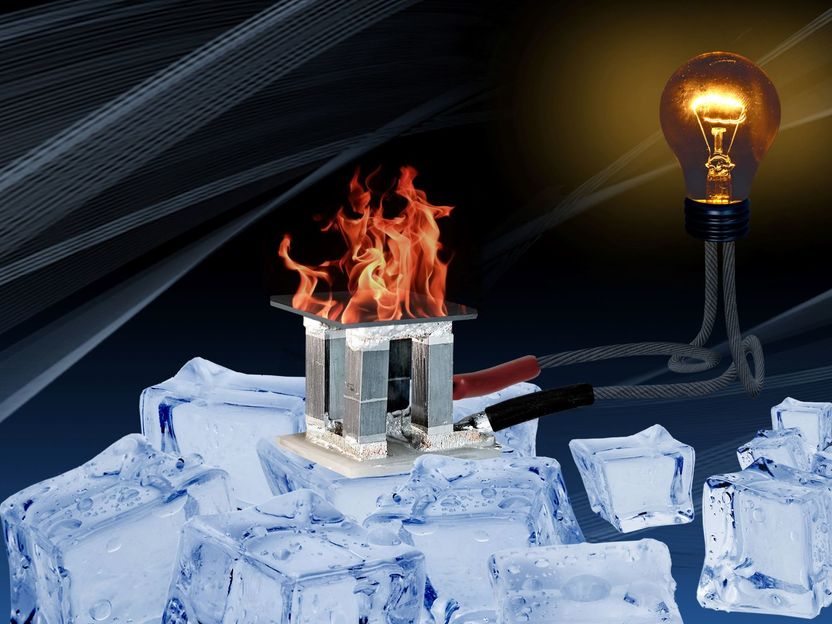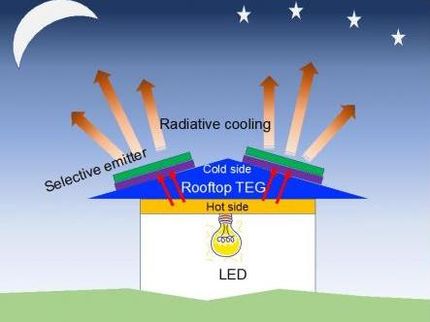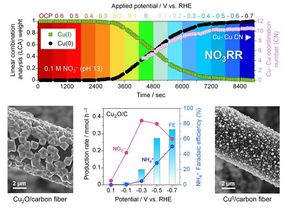First Tellurium-free thermoelectric modules for power generation for Low Temperatur Application
The replacement of the scarce element Tellurium makes the devices cheaper while remaining the performance
Advertisement
More than 60% of the energy generated by burning fossil fuels is dissipated as waste heat, of which more than half is low-grade heat with temperatures below 300°C. Effective harnessing this low-grade heat to generate electricity is vital for alleviating the burden on the energy supply and reducing the emission of greenhouse gases. Thermoelectric technology stands out owing to its solid-state nature, which guarantees an ultra-long operational lifetime and is particularly attractive for heat-to-electricity conversion. The broader applicability of thermoelectric technology relies on the availability of high-performance materials and modules that operate efficiently below 300°C.

A thermoelectric generator converts temperature differences directly into electrical energy
IFW Dresden / R. Uhlemann
For more than 50 years, the commercial thermoelectric modules have relied on bismuth-telluride-based compounds because of their unmatched thermoelectric properties at temperatures associated with low-grade heat. However, the wider applicability of bismuth-telluride modules is severely limited by the scarcity of Tellurium with a concentration of <0.001 ppm in the Earth’s crust and an annual production of less than 500 metric tons. Therefore, it is imperative to develop thermoelectric modules from other, more abundant materials while retaining high performance in the low temperature range (<300°C).
Researchers from the Leibniz-Institute for Solid State and Materials Research Dresden, in collaboration with Prof. Zhifeng Ren at the Texas Center for Superconductivity (TcSUH) at the University of Houston, now developed for the first time a highly efficient Tellurium-free thermoelectric generator based on Magnesium-Antimony compounds, by using a simple, versatile, and thus scalable processing routine. These new thermoelectric generators achieve an efficiency of 7.0% at a temperature difference of 250°C and thus even exceed the efficiency of commercial bismuth telluride-based thermoelectric generators (~5.2%). This work marks a feasible, sustainable alternative to Bismuth-telluride-based thermoelectric modules and will spur a wider application of thermoelectric technology in converting low-grade heat to electricity and thermoelectric coolers.

































































